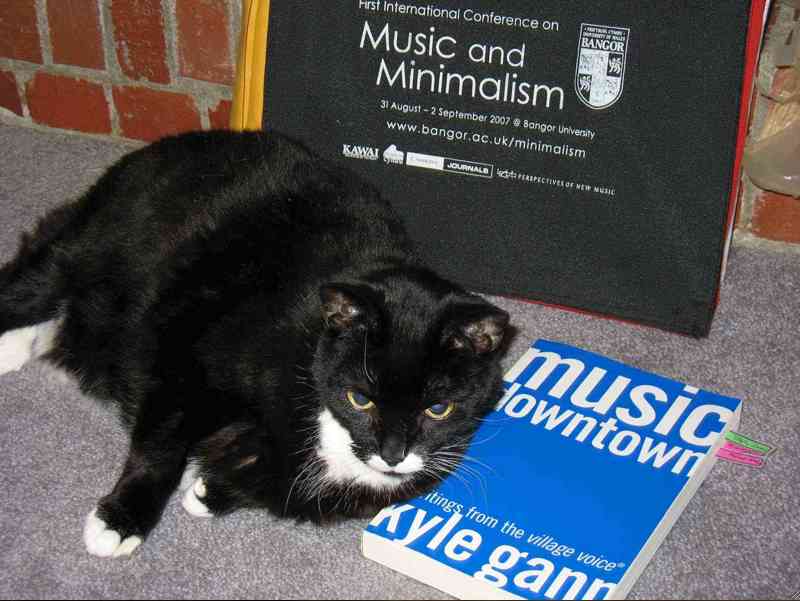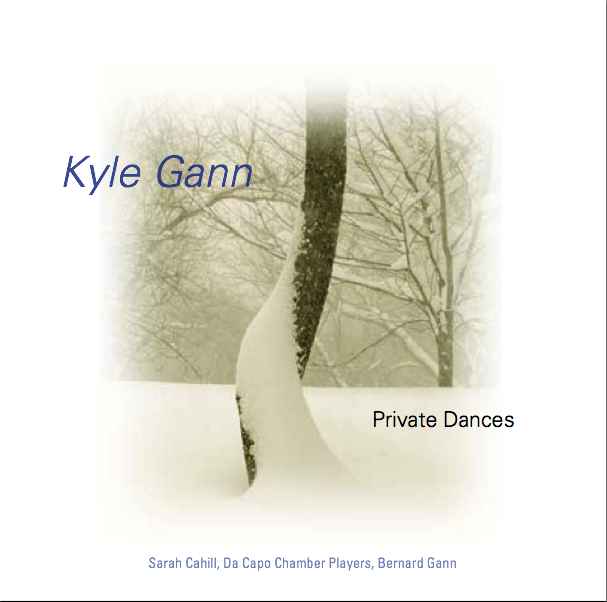There are, I admit, composer mugs that pop up on the front page of New Music Box that I get sick of seeing week after week, but I was very pleased to see Lois Vierk’s friendly face appear to advertise Frank Oteri’s interview with her. As Frank correctly reports, Lois seemed on the verge of a career breakthrough in the mid-90s, when she came down with an obscure, nearly impossible-to-diagnose neural condition that has put her out of the public eye for several years. She explains the details to Frank, and reveals, luckily, that she seems to be pulling out of it. She also recounts details of how she structures her pieces, stuff that I wish I had known when I wrote my American music history. Good interview. Lois is a tremendous talent, and I do look forward to her return to musical society.
The interview reminds me of a slight anecdote that took place at one of Lois’s Roulette concerts in the ’90s. I was sitting next to a composer friend whose love life was a continuing soap opera and an endemic shambles. Lois’s pieces all had the same kind of exponentially accelerating form that she describes in the interview. Between two of them, I leaned over and facetiously asked my friend, “Lois seems able to build every piece around the same form. Why can’t you and I do that?” “Fear of commitment,” was her whispered answer.
(In fact, that further reminds me of how Lois and I met, at New Music America in Minneapolis in 1980. After a concert, like a typical grad student, I was the first to the refreshment table at a post-concert reception. Lois walked up, and we talked. I was single, and somewhat on the prowl. But another guy neither of us knew came up and joined us. Sometime later, she married him.)
I also have to comment on the death of Leonard B. Meyer, author of Emotion and Meaning in Music, Music, the Arts, and Ideas, and other books. The Times has a nice obituary. Meyer’s books hit my generation in college, and were the primary aesthetic tomes against which, and in defense of which, we sharpened our rhetorical skills. In the latter book, he laid out a future of endless polystylistic stasis, “the end of the Renaissance,” which at the time seemed daring, foreboding, and unlikely. Today we’ve come to live pretty comfortably in the world he was the first to predict. Meyer was one of the few musical figures of my time that I would have liked to meet and never did.


 A copy of my new CD on the New Albion label, Private Dances, has just been handed to me. The official release date is January 22. My stuff never seems to get out quite in time for Christmas (this happened with Music Downtown two years ago too), but then, I’m not much for participating in American commercialism anyway. I guess.
A copy of my new CD on the New Albion label, Private Dances, has just been handed to me. The official release date is January 22. My stuff never seems to get out quite in time for Christmas (this happened with Music Downtown two years ago too), but then, I’m not much for participating in American commercialism anyway. I guess.